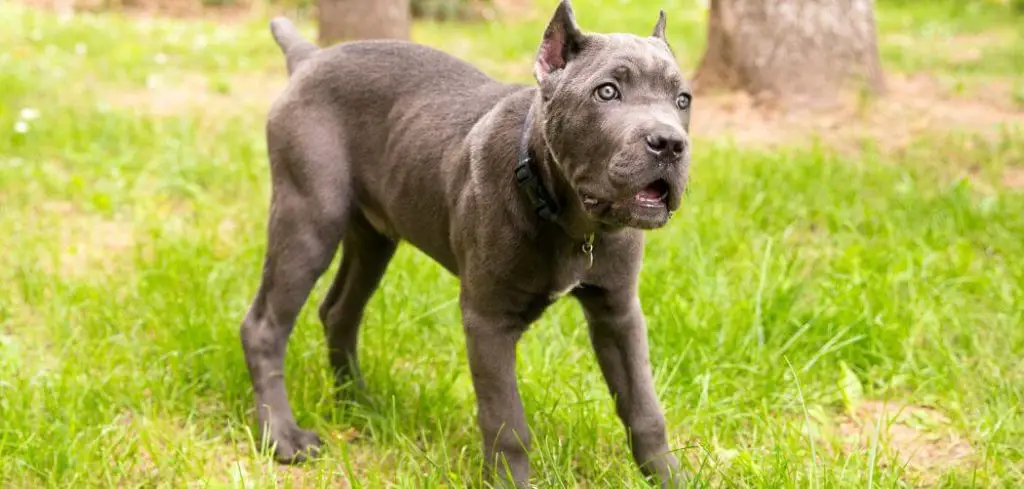When a dog is drinking a lot of water and losing weight, it’s a red flag that should not be ignored. While one symptom on its own might not be alarming, this combination often points to a serious underlying condition that requires veterinary attention.
We outline the common causes of dog drinking a lot of water and losing weight, what you can do at home, and when to seek veterinary help.
Dog Drinking a Lot of Water and Losing Weight — Why It Happens
Excessive thirst combined with unexplained weight loss can indicate diabetes, kidney disease, hyperthyroidism (in rare cases), cancer, or intestinal malabsorption. These conditions disrupt your dog’s ability to maintain healthy hydration and nutrient balance, leading to visible changes in both behavior and body condition.

Common Causes of Dog Drinking a Lot of Water and Losing Weight
Diabetes Mellitus
Diabetes is one of the most common causes of this symptom pairing. In diabetic dogs, the body cannot properly use glucose for energy, leading to elevated blood sugar levels.
As a result, your dog will urinate more frequently to flush out the excess glucose, which leads to dehydration and increased thirst (polydipsia). Despite eating well or even more than usual, your dog may still lose weight because nutrients aren’t properly utilized.
Additional signs may include lethargy, urinary accidents, sweet-smelling breath, and cloudy eyes. Diabetes requires a formal diagnosis through blood and urine tests, followed by insulin therapy and careful diet management.
Chronic Kidney Disease (CKD)
The kidneys regulate waste and water balance in the body. When they begin to fail, they lose the ability to concentrate urine. This leads to more water loss, which the body compensates for through increased drinking.
Dogs with kidney disease often experience gradual weight loss due to toxin buildup, nausea, and reduced appetite. Vomiting, bad breath (often with a metallic odor), and pale gums may also be present.
Kidney disease is usually diagnosed through bloodwork (elevated BUN and creatinine) and urinalysis. While it’s not curable, dietary adjustments, medications, and fluid therapy can help slow progression and improve quality of life.
Cancer
Some cancers in dogs—especially those affecting internal organs like the liver, spleen, or gastrointestinal tract—can cause both increased thirst and unintentional weight loss.
Thirst may increase due to metabolic changes, internal bleeding, or secondary infections. Weight loss happens as the cancer consumes body resources or causes decreased appetite.
Other signs may include lethargy, visible lumps, vomiting, diarrhea, or difficulty breathing depending on the cancer type and location. A thorough veterinary workup including imaging and blood tests is required for diagnosis.
Intestinal Malabsorption or Chronic GI Disease
Conditions like inflammatory bowel disease (IBD), exocrine pancreatic insufficiency (EPI), or chronic parasitic infections can interfere with your dog’s ability to absorb nutrients properly.
In these cases, your dog may eat normally—or even more than usual—but still lose weight. Diarrhea or frequent bowel movements may accompany the weight loss, and dehydration from fluid loss can increase water consumption.
Testing may include fecal exams, abdominal ultrasound, and specific blood tests for digestive enzymes. Treatment usually involves dietary changes, enzyme supplements, or immunosuppressive medications.
Related: Dog drinking a lot of water and not eating (Here’s why)
Hyperthyroidism (Rare in Dogs)
While more common in cats, hyperthyroidism can occasionally occur in dogs, particularly due to thyroid tumors. It causes a sped-up metabolism, leading to rapid weight loss, excessive thirst, increased urination, hyperactivity, and a racing heartbeat.
Due to its rarity in dogs, diagnosis often requires advanced testing and thyroid hormone panels. Treatment may involve surgery, medication, or radiation therapy.
What to Do If Your Dog Is Drinking a Lot and Losing Weight
Track your dog’s water intake, weight, and food consumption over several days. Even subtle changes can provide important clues for your vet.
Ensure your dog has access to fresh water at all times, but prevent rapid gulping, which could cause vomiting.
Switch to a highly digestible, high-quality diet to support nutrient absorption and energy needs while you investigate the underlying cause.
Avoid giving over-the-counter supplements or medications without consulting your vet—they could worsen the condition or mask symptoms.
Make an appointment with your veterinarian as soon as possible. Bring a urine sample, a list of diet and recent changes, and be prepared to discuss your dog’s full health history.
When to Call or Visit Your Vet
Immediate veterinary attention is warranted if your dog:
Is losing weight over days or weeks despite eating well
Drinks noticeably more than usual and urinates frequently
Has diarrhea, vomiting, or reduced appetite
Shows lethargy, weakness, or behavior changes
Has a known medical condition such as diabetes or kidney disease and symptoms worsen
Your vet will likely conduct bloodwork, urinalysis, and possibly X-rays or ultrasound to determine what’s going on internally.
Read more: Dog Drinking a Lot of Water and Peeing In The House (What It Means)
Key Takeaway
If your dog is drinking a lot of water and losing weight, it’s often a sign of something more serious than just dietary change or aging.
Monitor symptoms closely, support your dog with hydration and gentle nutrition, and seek prompt veterinary care to diagnose and treat the root cause. Early intervention could save your dog’s life and improve long-term outcomes.
